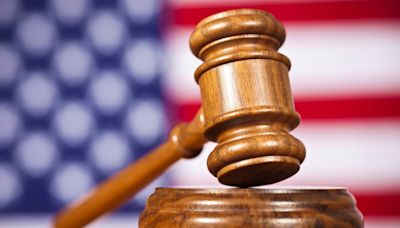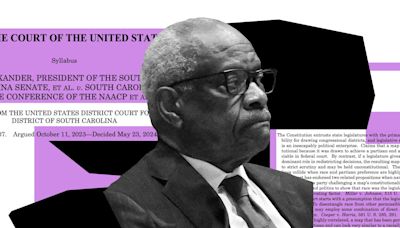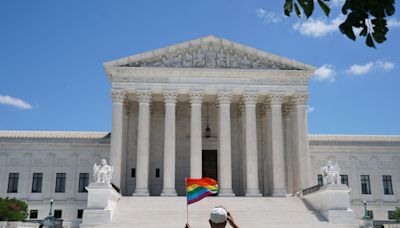Search results
The Fourteenth Amendment addresses many aspects of citizenship and the rights of citizens. The most commonly used -- and frequently litigated -- phrase in the amendment is " equal protection of the laws ", which figures prominently in a wide variety of landmark cases, including Brown v.
The Equal Protection Clause’s duality is evidenced by the fact that the Framers of the Fourteenth Amendment adopted all manners of race-conscious measures specifically for black Americans: the Freedman’s Bureau, schools, hospitals, banks, and land.
The Equal Protection Clause is part of the first section of the Fourteenth Amendment to the United States Constitution. The clause, which took effect in 1868, provides "nor shall any State ... deny to any person within its jurisdiction the equal protection of the laws." It mandates that individuals in similar situations be treated equally by ...
No State shall make or enforce any law which shall abridge the privileges or immunities of citizens of the United States; nor shall any State deprive any person of life, liberty, or property, without due process of law; nor deny to any person within its jurisdiction the equal protection of the laws.
Overview of Fourteenth Amendment, Equal Protection and Rights of Citizens. State Action Doctrine. Section 1 Rights. Due Process Generally. Citizenship. Historical Background on Citizenship Clause. Citizenship Clause Doctrine. Loss of Citizenship. Privileges or Immunities of Citizens and the Slaughter-House Cases.
No State shall make or enforce any law which shall abridge the privileges or immunities of citizens of the United States; nor shall any State deprive any person of life, liberty, or property, without due process of law; nor deny to any person within its jurisdiction the equal protection of the laws.
No State shall make or enforce any law which shall abridge the privileges or immunities of citizens of the United States; nor shall any State deprive any person of life, liberty, or property, without due process of law; nor deny to any person within its jurisdiction the equal protection of the laws. Section 2.




